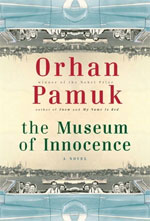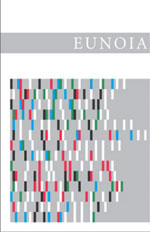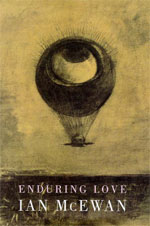
I can’t decide if this is just a story about an emotionally dishonest person, or this is an emotionally dishonest story about an emotionally dishonest person. Awake by Elizabeth Graver starts out as the book equivalent of a well-intentioned and relatively well-made disease-of-the-week TV movie. It’s told from the point of view of Anna, married mother of two boys, the youngest of whom is afflicted with a rare illness that is essentially a severe, potentially fatal allergy to natural light. Overly telegraphed plot developments early on suggest that someone has a penchant for the dramatic, but throughout the book, I tussled with whether this was Anna or Graver herself.
The story of a mother and a family coping with a sick child – including how all of the relationships within the family are affected, not to mention household routines – gets railroaded fairly quickly. Anna finds a summer camp designed especially to accommodate sufferers of her child’s disease and their families. The family’s first visit ostensibly gives all of them new freedoms they have never experienced before. We really only follow Anna’s personal pursuit of freedom, however. It would be acceptable to realize that this was really a story about Anna only and how she’s been affected and what she’s sacrificed and compromised and all the rest, but it all happens too quickly, both in the framework of the book and in presumed calendar time, to emotionally and realistically buy into it and accept the shift in focus. Essentially, the children and husband seemed to be dropped pretty precipitously and remorselessly. To try to be sympathetic, perhaps Anna has become a bore *because* she has sacrificed so much for her family. But it still just makes for a tedious account of a person rationalizing her selfish, self-absorbed secretiveness, as her current behaviours morph into transgressions. However, when she starts to confess that she’s had a somewhat furtive and untrustworthy track record all along – and therefore her current family situation is not what is driving her to be dishonest for the first time – all sympathy goes out the tinted window. At least Anna’s comeuppance has a bit of a twist to it. Sadly, that’s not enough to redeem the book or the character. I’ll try to give Graver some credit that she does think what her main character has done is irresponsible. However, it also feels like she cuts her a bit too much slack, lets her rationalize too much, and throws in a few convenient external excuses for her behaviour in the book’s rather perfunctory wrap-up. Maybe Anna is really just ill-suited for the life of a mother and wife, and she should have stayed on the rootless artist path she seems to yearn for. Or maybe there is a more clinical explanation for at least her more recent personal inconsistencies and inconstancy – she’s just suffering from a variation of seasonal affective disorder, as she avoids the light almost as much as her afflicted child. But it doesn’t explain away some of her earlier duplicity, and ultimately doesn’t make for a sympathetic connection with the character and the book.



